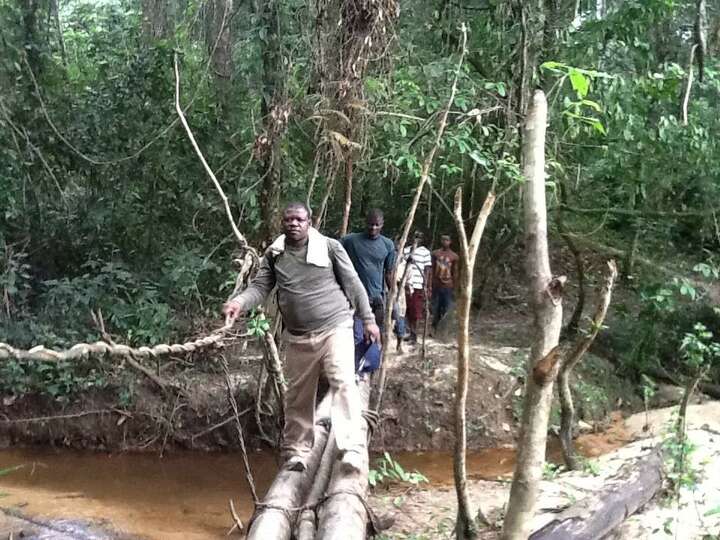
Meet COUNTDOWN Liberia’s Research Uptake Officer and National Coordinator for Schistosomiasis (SCH) & Soil Transmitted Helminthiasis (STH).
Starting out in Neglected Tropical Diseases (NTDs)
I joined the Ministry of Health and Social Welfare (MOHSW) in 2009 as National Onchocerciasis Coordinator and Deputy Program Manager for the National Eye Care Program (NECP). At this point, there was no unit or department for NTDs at MOHSW because the ministry was managing only onchocerciasis in Liberia and it was placed under the National Eye Care Program.
The NTDs Unit was organized in 2011 when mapping for Lymphatic Filariasis was completed in the 15 counties, followed by mapping of other NTDs such as SCH, STH and Buruli Ulcer. In 2012, I was then re-appointed as National Onchocerciasis Coordinator responsible for onchocerciasis only. During this period, Liberia created an integrated NTDs programme with a director and coordinator responsible for various NTDs.
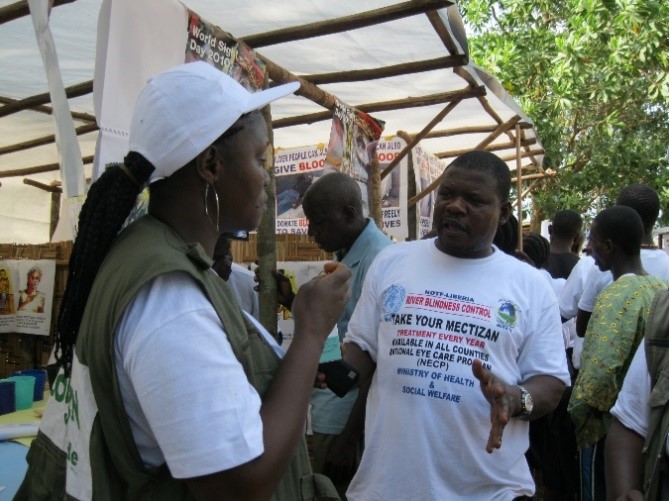
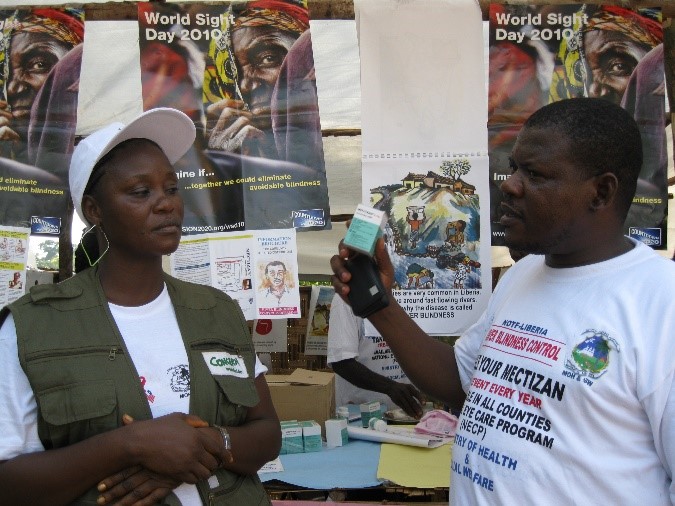
Distributing Mectizan at Liberia National Health Fair in 2010
Balancing roles as a National Coordinator of Schistosomiasis and Research Uptake Officer for the COUNTDOWN research programme
As a National Coordinator of Schistosomiasis, my work plan is well developed to avoid any interruptions with my function as a Research Uptake Officer for the COUNTDOWN Program. My position is based in Monrovia but involves coordinating the NTDs Program Focal Persons in the various counties where SCH/STH Mass Drug Administration (MDA) are to take place in the year. We meet as a team and plan for the annual treatment round. Based on the annual treatment plan, it allows me to carve out time to work as a Research Uptake Officer, a position that is also based in Monrovia and focusing on NTDs research. As most of my work day revolves around the Ministry of Health; I make time to visit the COUNTDOWN Office twice a week. In terms of field activities, I support the COUNTDOWN team in the field to visit targeted communities to ensure that the research is proceeding as planned. Most of the SCH & STH COUNTDOWN activities are based in the communities where most of the national data and information originate. Working as a National Coordinator of Schistosomiasis and Research Uptake Officer, has been tremendously rewarding for me to follow-up with both activities at national, county, district and community levels and think about how we share the information gathered to people from various walks of life.
Biggest challenge encountered working as a National Coordinator of NTDs
One of the biggest challenges has been the motivation of Community Drug Distributors (CDDs) as most of the national programmes pay their volunteers during campaigns while the NTDs Programme does not have the funds to pay the CDDs during MDA. Because of this, there is a high attrition rate of CDDs which leads to the training of new CDDs every year. The next challenge is access to the communities due to bad road conditions that hinders reaching some of the endemic communities who need the drugs.

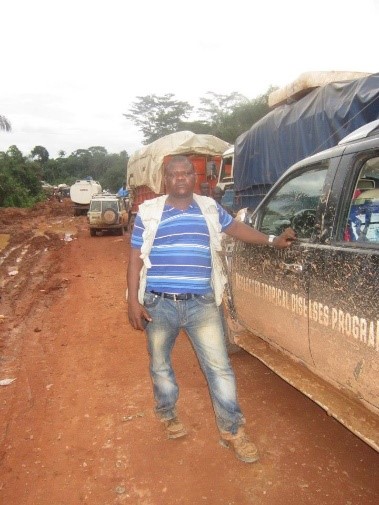
Most enjoyable part of field work
The interaction with the communities when providing health education and sensitization on the various NTDs in Liberia is a key high point for me. The training of health workers on Neglected Tropical Diseases, their complications, the burden these diseases are causing the population in Liberia and the world at large and how to prevent these diseases, is fulfilling. One of my passions is to make sure that hard-to-reach communities benefit from mass drug administration with Praziquantel for Schistosomiasis prevention and control.
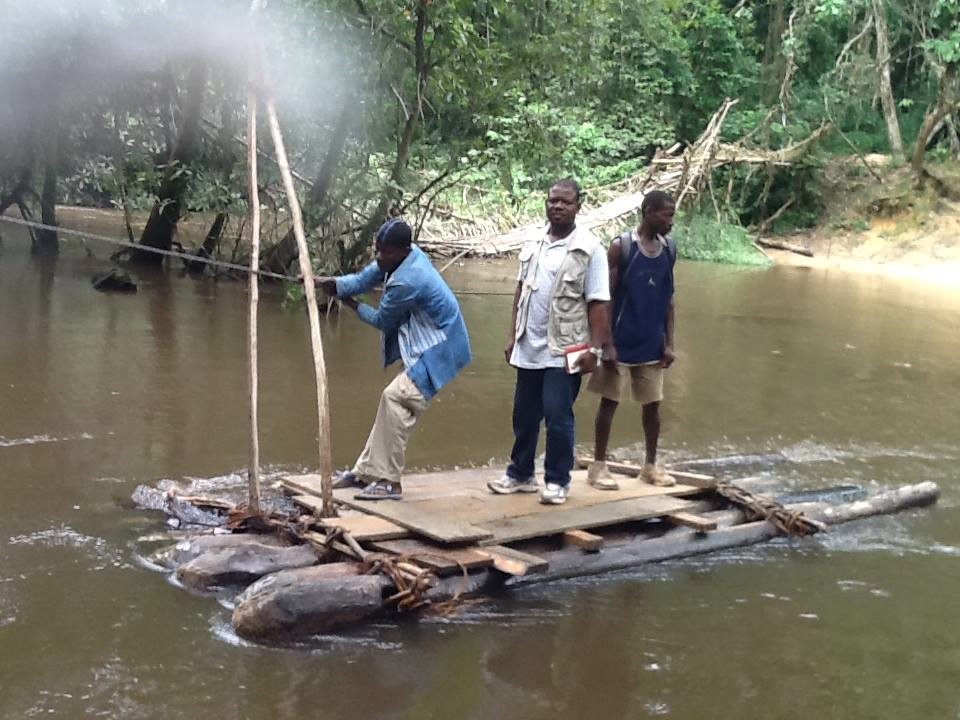
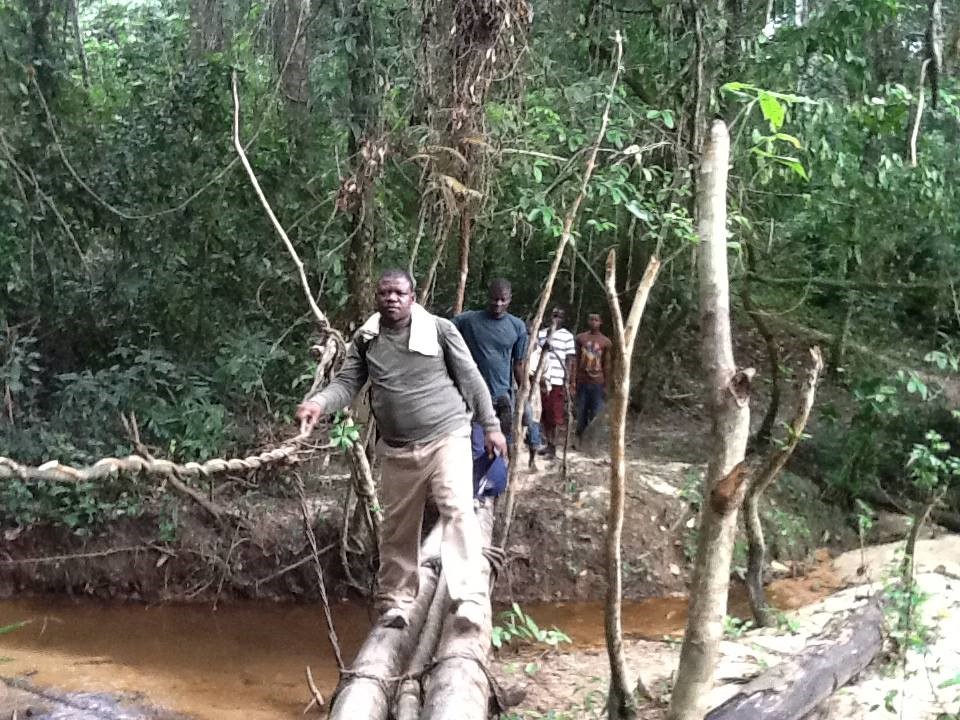
Bong County Mass Drug Administration supervision for Schistosomiasis
Changes observed in the past 10yrs in the NTD world both in Liberia and internationally
There has been great changes in the NTDs world, starting with onchocerciasis changing from control to elimination through mass drug administration and vector control. Due to the high burden and disability these diseases cause to the human population, the interest to control and eliminate has led to the establishment of international and local organizations to tackle the prevention of these diseases. The African Program for Onchocerciasis (APOC) played a significant role in reducing the prevalence of targeted NTDs in many endemic countries. The World Health Organization has paid keen attention to NTDs as a serious public health problem in the world. Awareness has also been created in various endemic countries for governments to include NTDs in their national plans and policies. There has also been an overwhelming support from donors and western countries for targeted NTDs control and elimination.
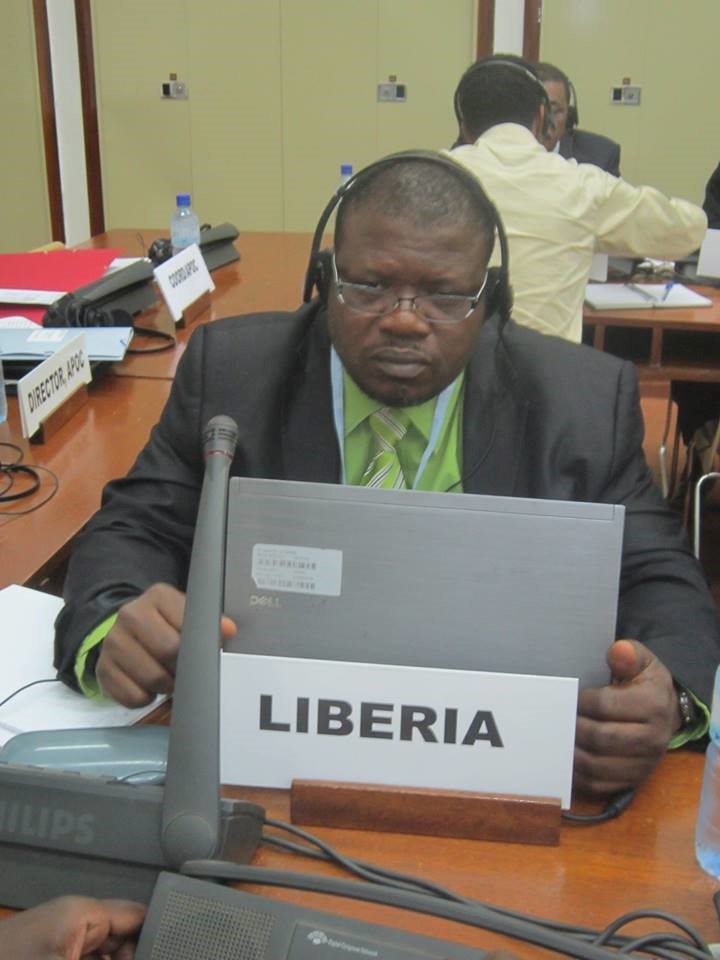
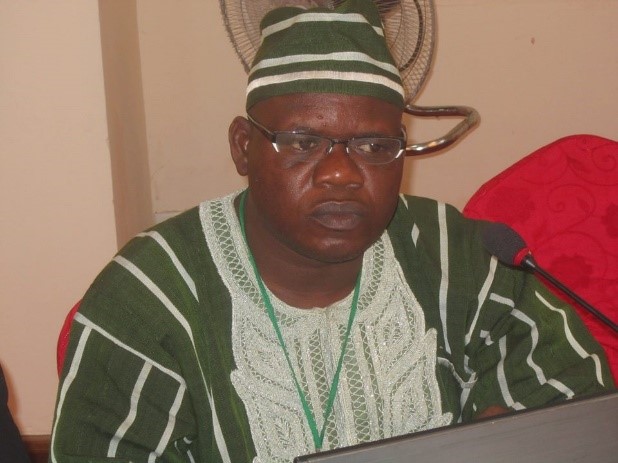
Word of advice for those looking to further their careers in NTDs
A decision to pursue a career in NTDs is a great choice. With the stigma and disability these diseases cause, future career seekers need to be well-skilled and experienced to help manage these diseases through a well-organized community program.
About Anthony Bettee
Mr Bettee holds a Diploma in Physician Assistance from the Tubman National Institute of Medical Arts (T.N.I.M.A) John F. Kennedy Medical Memorial Hospital, Republic of Liberia, 1999. He received a BA in Sociology with a Minor in Demography from the University of Liberia in 2015. Mr. Bettee obtained a Diploma of Advanced Studies (DAS) in Health Care and Management (HCM) from Research to Implementation at the Swiss Tropical and Public Health Institute (Swiss TPH), Basel, Switzerland in 2008 and a MPH in Epidemiology from Cuttington University Graduate School, Monrovia Liberia, in 2018.
